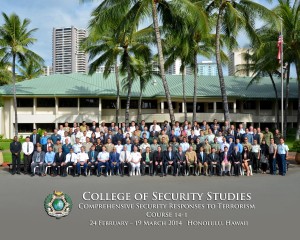 One hundred one Fellows from 44 different locations graduated today from the Asia-Pacific Center for Security Studies’ Comprehensive Security Responses to Terrorism (CSRT) course in Honolulu. Of the 101 participants, 70% were from military organizations and law enforcement agencies, with others representing various government ministries, foreign affairs departments and intelligence services and academic institutions. Just over half of the course participants were from the Asia-Pacific region, with five continents represented.
One hundred one Fellows from 44 different locations graduated today from the Asia-Pacific Center for Security Studies’ Comprehensive Security Responses to Terrorism (CSRT) course in Honolulu. Of the 101 participants, 70% were from military organizations and law enforcement agencies, with others representing various government ministries, foreign affairs departments and intelligence services and academic institutions. Just over half of the course participants were from the Asia-Pacific region, with five continents represented.
Fellows participating in CSRT 14-1 were from Bangladesh, Brazil, Bulgaria, Burundi, Cambodia, Columbia, Djibouti, Egypt, El Salvador, Honduras, Hong Kong, India, Indonesia, Jordan, Kazakhstan, Kenya, Kyrgyzstan, Lebanon, Malaysia, Maldives, Mauritius, Mexico, Mongolia, Morocco, Nepal and Nigeria. They also came from Oman, Pakistan, Panama, Philippines, Sierra Leone, South Africa, South Korea, Sri Lanka, Tanzania, Thailand, Timor-Leste, Tonga, Tunisia, Turkey, Uganda, United States, Vietnam and Yemen.
CSRT is an annual, special focus course that provides security practitioners from the Asia-Pacific region and around the world the operational and strategic-level skills necessary to enhance their ability to combat terrorism while cooperating with other regional partners. Through faculty lectures and guest speaker presentations in plenary sessions, real-world case studies, seminar discussions and collaborative experience and perspective sharing, Fellows explore the nature of current and future terrorist threats, examine the challenges associated with countering ideological support for terrorism and violent extremism, achieve a more common understanding of global and regional terrorism challenges, analyze tools and capabilities for combating terrorism and transnational threats in order to promote appropriate strategies. It is also designed to build relationships between and among the United States and current and future counterterrorism practitioners of participating countries, for the purpose to develop the trust and confidence necessary for increased information sharing while identifying ways to reduce obstacles to cooperation in the international struggle against those who use terror to promote their goals.
This CSRT course was divided into four parts and held between plenary and smaller, seminar sessions. The first, Knowing the Challenge, provided a framework with which to view contemporary terrorism and violent extremism through the exploration of historical examples, including the origins, motivations, environmental influences and other contributing factors that fuel terrorism. The second part, Emerging Issues, Risks and Threats, presented a wide spectrum of organizational and innovational trends of modern terrorism and future evolutionary applications. The third part, Preparing Ourselves, explored various approaches to counter, deter and mitigate terrorism, including building whole of government cooperation, regional and international collaboration capacity, development of intelligence and information sharing technologies, and related legal complexities. The final part of the course encouraged dialogue, reflection and further research amongst the Fellows in their seminar groups. This enabled them to work with other Fellows from their regions, in some cases breaching national rivalries, to first better understand the biases that drive decision making in their cultures and later to examine future trends in their regions and the best means to collectively mitigate emerging terrorist activities and threats.
The Asia-Pacific Center for Security Studies is a Department of Defense academic institute that addresses regional and global security issues. Military and civilian representatives, most from the U.S. and Asia-Pacific nations, participate in a comprehensive program of executive education, professional exchanges and outreach events, both in Hawaii and throughout the Asia-Pacific region. The Center supports the U.S. Pacific Command by developing and sustaining relationships among security practitioners and national security establishments throughout the region. APCSS’ mission is to build capacities and communities of interest by educating, connecting, and empowering security practitioners to advance Asia-Pacific security. It is one of the Department of Defense’s five regional security studies centers. Since opening in 1995, the Center has had representatives from 104 countries and territories attend courses at the Center for a total of 8,352 alumni.
-END-


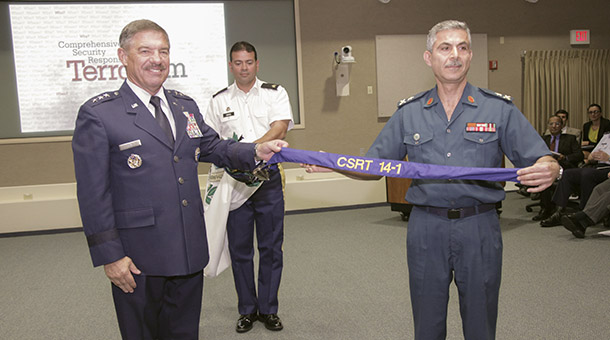
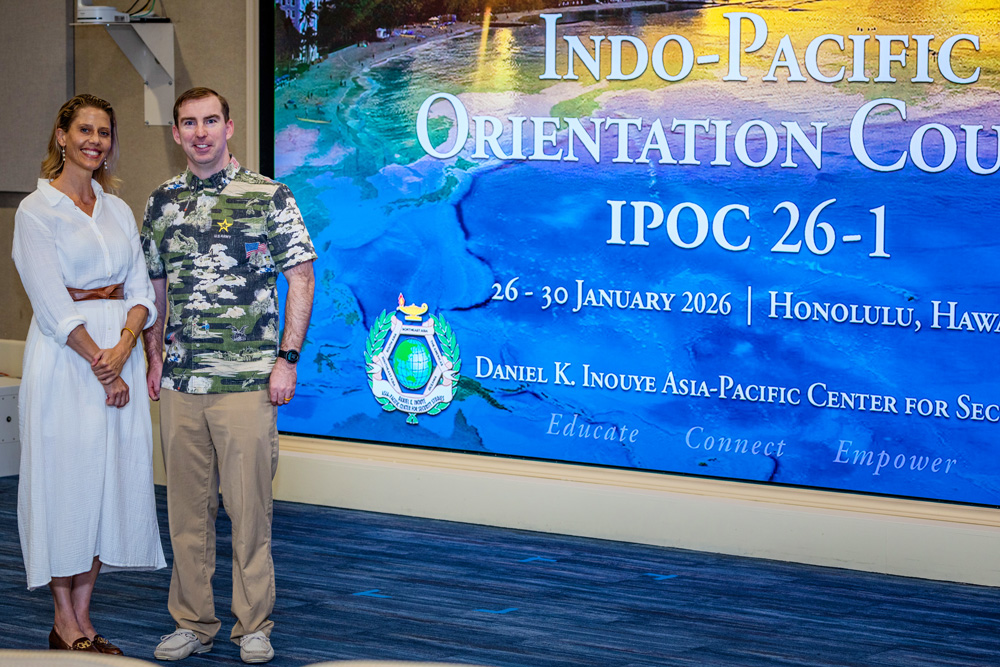
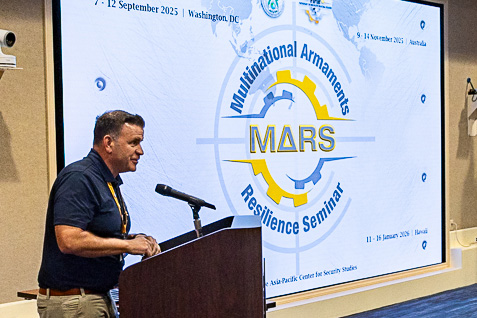
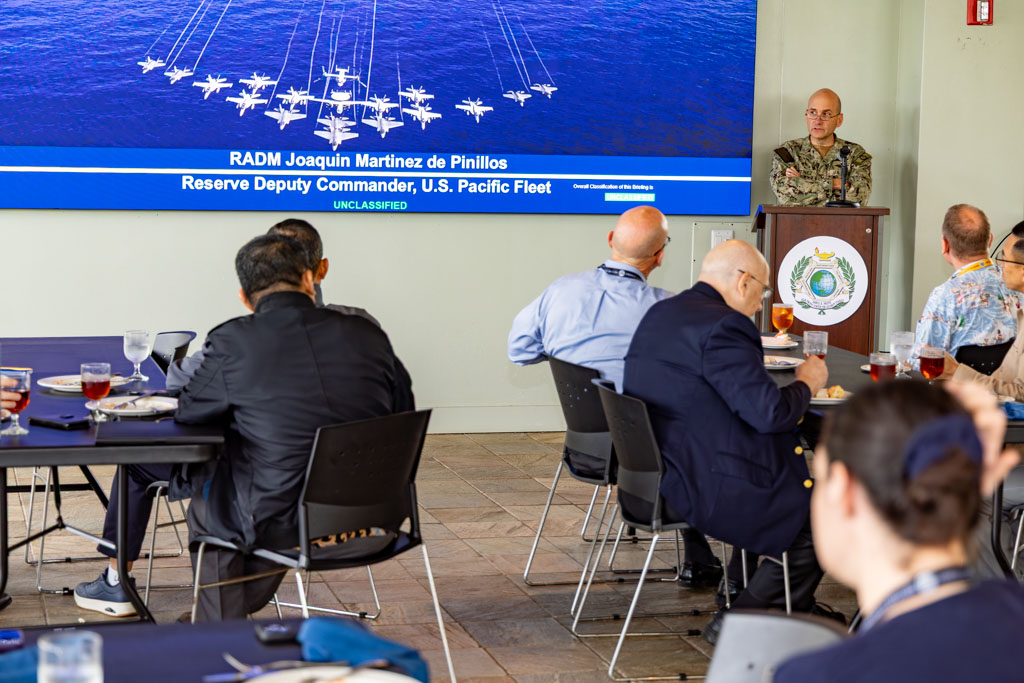




It was great to be part of so many security practitioners deliberating on the issue of terrorism and agreeing that they all need to heed the threat and be prepared for the worst. An excellent faculty who would have patience to discuss all issues pertaining to the subject. All this was backed by finest administrative arrangements for the conduct of course.